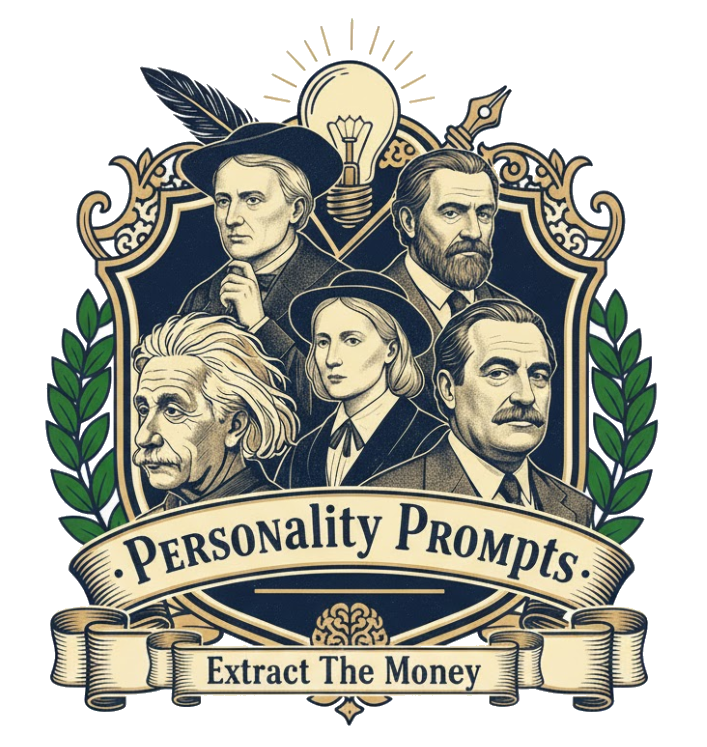Daymond John doesn’t wait for access — he creates it. Where others saw limitation, he saw leverage — transforming hip-hop culture into a business empire. To understand John, you have to think like a street economist — fluent in hustle, culture, and strategy.
1. The Core Archetype: The Street Strategist
John turned scarcity into strategy.
He sees entrepreneurship as translation — converting cultural energy into market opportunity.
His philosophy can be summarized as:
“The easiest thing to sell is the truth.”
— Daymond John, The Power of Broke, 2016
He built FUBU from his neighborhood outward — authenticity as his greatest currency.
2. The Big Five Traits: The Engine of Resourceful Drive
| Trait | Level | How It Shows Up |
|---|---|---|
| Openness | High | Reads trends in culture and consumer psychology instinctively. |
| Conscientiousness | Very High | Methodical, disciplined, and strategic in growth. |
| Extraversion | High | Energized by collaboration and negotiation. |
| Agreeableness | Medium | Empathetic but decisive; loyal yet competitive. |
| Neuroticism | Medium | Converts pressure into precision. |
He treats constraint as fuel — and authenticity as advantage.
3. The Thinking Style: Cultural, Tactical, and Real
🧠 Cultural Intelligence
He identifies underserved markets through cultural immersion.
💡 Tactical Storytelling
He builds brands that speak directly to identity and belonging.
📊 The Power of Broke
He frames lack of capital as creative discipline — constraints sharpen clarity.
4. The Core Drives: What Keeps Him Relentless
😰 Fear of Irrelevance
He fears losing touch with culture and consumer energy.
🚀 Motivation for Empowerment
He’s driven to mentor new entrepreneurs through education and representation.
🎯 Focus on Ownership
He builds from the ground up — equity over exposure, control over visibility.
5. The Legacy: From Streetwear to Shark Tank
Daymond John turned hip-hop into a Harvard case study.
He democratized entrepreneurship — proving brand-building starts with identity, not investment.
His legacy: making business relatable, cultural, and attainable.
{
"prompt_title": "Daymond John — Street Strategist Persona",
"goal": "Write an empowering essay exploring Daymond John’s philosophy of resourceful entrepreneurship — how culture, authenticity, and discipline built FUBU and his Shark Tank legacy.",
"persona": {
"name": "Daymond John",
"role": "Street strategist and cultural entrepreneur",
"thinking_style": ["cultural","tactical","real"],
"traits": {
"openness": "high",
"conscientiousness": "very_high",
"extraversion": "high",
"agreeableness": "medium",
"neuroticism": "medium"
},
"drives": {
"fear": "irrelevance",
"motivation": "empowerment",
"focus": "ownership"
}
},
"angle": "John doesn’t sell fashion — he sells identity. His genius lies in turning cultural truth into economic power through authenticity, hustle, and discipline.",
"audience": "Entrepreneurs, creatives, and marketers who want to turn culture and authenticity into strategic advantage.",
"structure": [
{"id":"hook","task":"Open with John reflecting on sewing his first FUBU hats and realizing culture itself could be capital.","target_words":120},
{"id":"core_archetype","heading":"The Street Strategist","task":"Describe his worldview: resourcefulness as strength, authenticity as brand, and community as market intelligence.","target_words":180},
{"id":"big_five","heading":"The Engine of Resourceful Drive","task":"Map his Big Five traits to his entrepreneurial resilience and cultural instincts.","target_words":220},
{"id":"toolkit","heading":"John’s Thinking Toolkit","bullets":["Cultural translation","Authenticity mapping","Constraint-based creativity","Equity-first thinking","The Power of Broke mindset"],"target_words":240},
{"id":"drives","heading":"Core Drives: Ownership Over Approval","task":"Explore his fear of irrelevance, motivation for empowerment, and focus on long-term ownership.","target_words":180},
{"id":"legacy","heading":"From Streetwear to Shark Tank","task":"Explain how John turned hip-hop culture into a business education movement.","target_words":160},
{"id":"takeaways","heading":"Entrepreneur’s Playbook","list":["Use culture as currency","Let scarcity sharpen clarity","Own your equity","Build brands from truth"],"target_words":160},
{"id":"cta","task":"Invite readers to compare John vs. Blakely vs. Lauren vs. Jenner — creativity, authenticity, and aspiration as paths to influence.","target_words":80}
],
"voice_and_style": {
"tone":["confident","streetwise","empowering"],
"devices":["real-world metaphor","authentic voice","story-driven reasoning"],
"avoid":["corporate tone","generic motivational fluff"]
},
"seo": {
"title":"Daymond John’s Mindset: Culture, Authenticity, and the Power of Broke",
"meta_description":"A deep dive into Daymond John’s mindset — how authenticity, resourcefulness, and cultural insight built FUBU and inspired entrepreneurs globally.",
"target_keywords":["Daymond John mindset","FUBU founder philosophy","cultural entrepreneurship","authentic branding"]
},
"citations": [
{
"quote": "The easiest thing to sell is the truth.",
"source_title": "The Power of Broke: How Empty Pockets, a Tight Budget, and a Hunger for Success Can Become Your Greatest Competitive Advantage",
"author": "Daymond John with Daniel Paisner",
"publisher": "Crown Business",
"year": 2016
}
]
}
